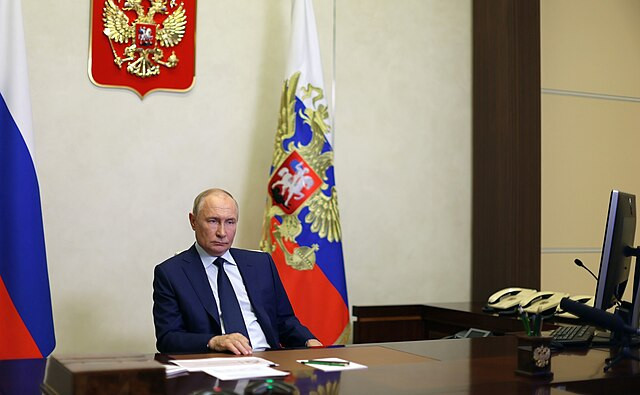Russian operatives are suspected of attempting to plant incendiary devices aboard commercial cargo planes bound for North America in a covert sabotage campaign, Western officials have revealed. The alleged plot, detailed by U.S. and European authorities, involved explosive-laden parcels intercepted in logistics hubs across Europe and marks a troubling escalation in Russia's efforts to disrupt Western support for Ukraine.
In July, packages designed to ignite during transit were sent to DHL facilities in Germany and the United Kingdom, according to investigators. One device exploded at a DHL center in Leipzig, Germany, while another ignited at a hub in Birmingham, England. The packages contained electric massagers packed with flammable magnesium-based material, officials said. The incidents raised concerns about the safety of commercial cargo flights, especially if such devices were to ignite mid-air.
Polish authorities have already detained four people in connection with the case and are searching for two more suspects. The detainees are alleged to be part of a broader Russian-backed network aimed at smuggling hazardous materials via European commercial carriers. According to Poland's national prosecutor's office, "The group's activities included sending parcels with camouflaged explosives to test the transfer channel for such parcels, which were ultimately intended for the U.S. and Canada."
U.S. officials have since heightened air cargo screening procedures. The Transportation Security Administration (TSA) noted that while there is no current active threat to U.S.-bound flights, the agency has ramped up screening measures in coordination with industry partners. "Over the past several months, as part of a multi-layered security approach, TSA worked with industry partners to put additional security measures for U.S. aircraft operators and foreign air carriers regarding certain cargo shipments bound for the United States," the agency said in a statement.
According to intelligence sources, Russian operatives intended to test these parcels' ability to evade detection. German intelligence officials pointed to a "great danger" if these devices were to ignite mid-flight. Thomas Haldenwang, Germany's domestic intelligence chief, noted that it was "sheer luck" the incendiary devices exploded on the ground.
U.K. counter-terrorism police are investigating the Birmingham incident. "On July 22, a package caught alight. It was dealt with by staff and the local fire brigade, with no reports of injuries or significant damage," the Metropolitan Police reported, without detailing further findings.
The sabotage plot is seen as part of a wider Russian effort to undermine Western infrastructure as Moscow attempts to stymie Western military and humanitarian support for Ukraine. The U.K.'s MI5 has warned of Russia's escalating sabotage activities in Europe. MI5 Director Ken McCallum has described Russia's actions as "increasingly reckless," citing incidents ranging from arson to jamming of GPS systems to disrupt aviation. "The GRU is on a sustained mission to generate mayhem on British and European streets," McCallum stated last month.
The Kremlin has denied the accusations, with Russian spokesperson Dmitry Peskov dismissing the allegations as "misinformation" lacking reliable evidence. Russian state media reported Peskov as saying the claims were "one of such fakes" often published by Western outlets.
This suspected sabotage plot comes amid rising accusations from U.S., British, and European leaders about Russia's alleged covert activities. U.S. Deputy Ambassador Robert Wood recently condemned Russia's actions at the United Nations, asserting that such activities could not go unaddressed. He highlighted Russia's suspected collaboration with North Korea, which further threatens international security.
The TSA, working with U.S. and foreign air carriers, has tightened security for cargo shipments. Though the July incidents didn't harm passengers, officials remain cautious. "Any device designed to explode mid-flight poses a significant risk to commercial aviation," noted Robert Weiss, a security analyst. According to Weiss, this latest alleged sabotage effort underscores Russia's strategy to create fear and disrupt routine operations across the West.




